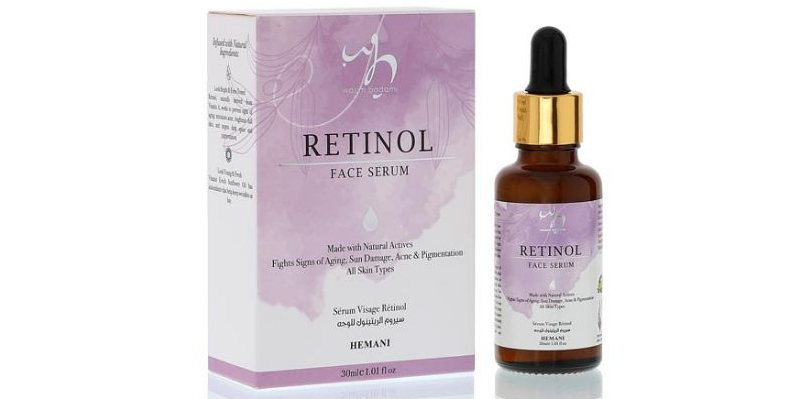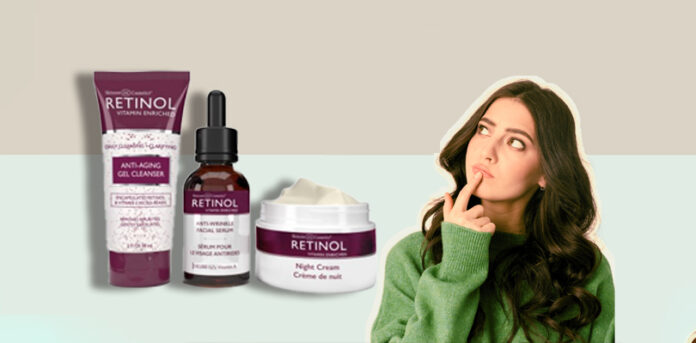Retinol, which is derived from vitamin A, has gained immense popularity in recent times due to its transformative effects on the skin. It is widely used in many skincare regimens and is known for its ability to make the skin look radiant and youthful. This guide aims to provide a concise and clear understanding of retinol, including its benefits, proper usage, and essential precautions. It is suitable for both seasoned skincare enthusiasts and newcomers looking to elevate their skincare routine.
What Is Retinol?
Retinol is a powerful compound derived from vitamin A that plays a crucial role in various biological processes related to skin function and appearance. It encourages skin cell turnover and stimulates the production of new cells, which helps in shedding old, damaged skin cells and revealing fresher and smoother skin underneath. Additionally, retinol boosts collagen production, a key protein that maintains the skin’s firmness and elasticity.
It is commonly found in topical products like creams, serums, and lotions. It is known for its ability to diminish fine lines and wrinkles, treat hyperpigmentation, and promote an overall youthful complexion.
The Skin Benefits Of Retinol

Retinol is an essential skincare ingredient that has many benefits for your skin. It can help reduce fine lines and wrinkles, even out your skin tone, revitalize your skin’s texture and firmness, prevent acne, minimize pores, and mitigate signs of aging. With its customizable nature, this skincare ingredient is suitable for all skin types, whether you have dry, oily, or sensitive skin.
One of the key benefits of retinol is its ability to boost collagen production, which results in smoother, more youthful-looking skin. It achieves this by effectively diminishing fine lines and promoting enhanced cell turnover. Additionally, it helps fade dark spots, making your complexion more even and renewed through its gentle exfoliation.
Retinol can also revitalize your skin’s texture and firmness, leaving you with softened and supple skin that radiates with good health. It regulates oil production, helps unclog pores, and prevents acne, contributing to a clearer and blemish-free complexion. Furthermore, exfoliating with this ingredient minimizes the appearance of pores, helping you achieve a smoother skin surface.
Lastly, retinol is considered age-defying magic as it addresses concerns like sagging, dullness, and loss of elasticity for a more youthful complexion. So, if you want healthier and glowing skin, retinol is definitely an ingredient to try.
Who Should Use Retinol?
Retinol is a highly recommended skincare ingredient for individuals dealing with specific skin concerns. It can greatly benefit those who have anti-aging concerns, whether it be fine lines, wrinkles, or age spots. Retinol is known for its ability to stimulate collagen production and reduce hyperpigmentation, making it an essential component in the quest for more youthful-looking skin.
Retinol is also highly recommended for individuals with acne-prone skin. Its ability to unclog pores and reduce acne lesions by promoting cell turnover can prevent the accumulation of dead skin cells that contribute to acne. Retinol can also effectively address uneven skin texture by facilitating smoother and more even skin texture through enhanced cell turnover, resulting in a healthier and more radiant complexion.
For individuals with sun-damaged skin, retinol can be a game-changer. It can promote collagen production and reduce hyperpigmentation, which helps mitigate the effects of sun-damaged skin. Additionally, some people incorporate it into their skincare routine as a preventative measure to maintain youthful-looking skin and stave off the development of fine lines and wrinkles.
Potential Side Effects And Precautions
Retinol, although highly beneficial for the skin, requires a cautious approach to ensure a positive skincare experience. It is essential to understand the potential side effects and take necessary precautions for a seamless integration into your routine. Here are some common side effects you should be aware of:
- Some users may experience mild redness or irritation, especially during the initial stages of its use.
- Retinol’s exfoliating properties may lead to temporary dryness and flakiness as it encourages the shedding of old skin cells.
- It may increase skin sensitivity to the sun. Therefore, using sunscreen is highly recommended while using it.
FAQs
Is retinol suitable for all skin types?
Yes, it is generally suitable for various skin types, including dry, oily, and sensitive skin. However, it’s essential to start with lower concentrations and gradually introduce it into your routine to minimize potential irritation.
Can I use retinol if I have sensitive skin?
Yes, individuals with sensitive skin can use retinol, but a cautious approach is crucial. Start with a lower concentration, perform a patch test, and monitor your skin’s response. If irritation persists, consult with a dermatologist for personalized advice.
How can I minimize dryness associated with retinol use?
To minimize dryness, incorporate a hydrating moisturizer into your routine. Starting with a lower concentration of retinol and gradually increasing it can also help your skin acclimate. Ensure consistent use of sunscreen during the day to protect your skin from increased sensitivity to the sun.

